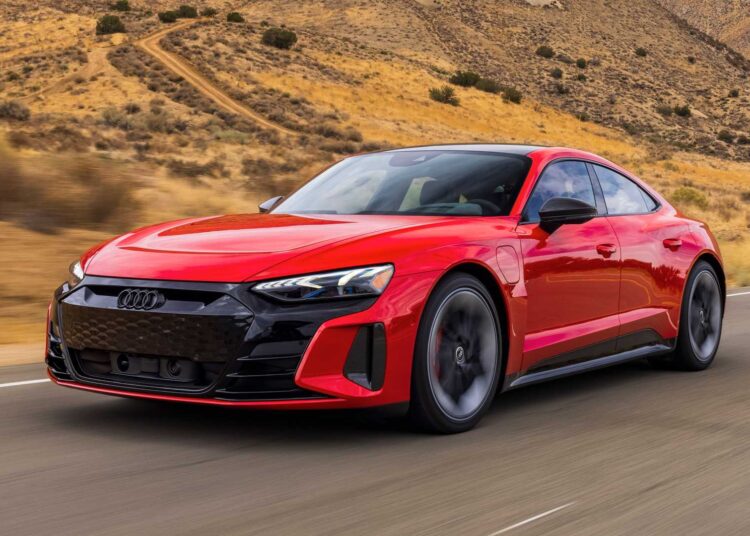With the five-cylinder TT RS and V10-powered R8 going away, you might be tempted to say Audi Sport’s lineup is losing a lot of the excitement. That’s true to some extent, but the managing director of the Four Ring’s go-faster division promises more performance models are on the way. Speaking with Autocar, Sebastian Grams said the team is looking for “different kinds of concepts” to replace the mid-engined supercar.
The R8 successor must fit the Volkswagen Group’s electrification strategy, and the same can be said about the TT. Audi’s parent company must give the proverbial green light. Grams went on to say there will “definitely” be more RS-badged SUVs in the future, without going into details. One can’t help but wonder whether the next-generation Q5 will finally receive the Audi Sport treatment to rival the AMG GLC and BMW X3 M.
217 Photos
Audi Sport’s managing director also promised additional electric RS cars to follow up on the RS E-Tron GT. Future models without a combustion engine are being engineered without adding too much weight by finding the perfect balance between power and the extra bulk of the batteries.
In addition, plug-in hybrid performance cars are on the way and these “will be no less amazing than what you’re driving today.” Per an announcement made in September 2019, the next-generation RS4 Avant will adopt a PHEV setup. Not all models will get the RS treatment as the German brand wants to avoid what Sebastian Grams refers to as “RS inflation.”
When asked about whether the company’s commitment to Formula 1 from 2026 with Sauber will lower the R&D budget for road cars, Audi Sport’s top brass said that won’t be the case. He explained that F1’s budget cap is important to avoid having to spend lots of money to get ahead of the competition.
By 2030, all Audi Sport models will be electrified to some extent, meaning the days of ICE-only cars are numbered. In the meantime, the company has already ruled out doing four-cylinder RS models, unlike Mercedes-AMG with its “45” lineup.
Read the full article here


























